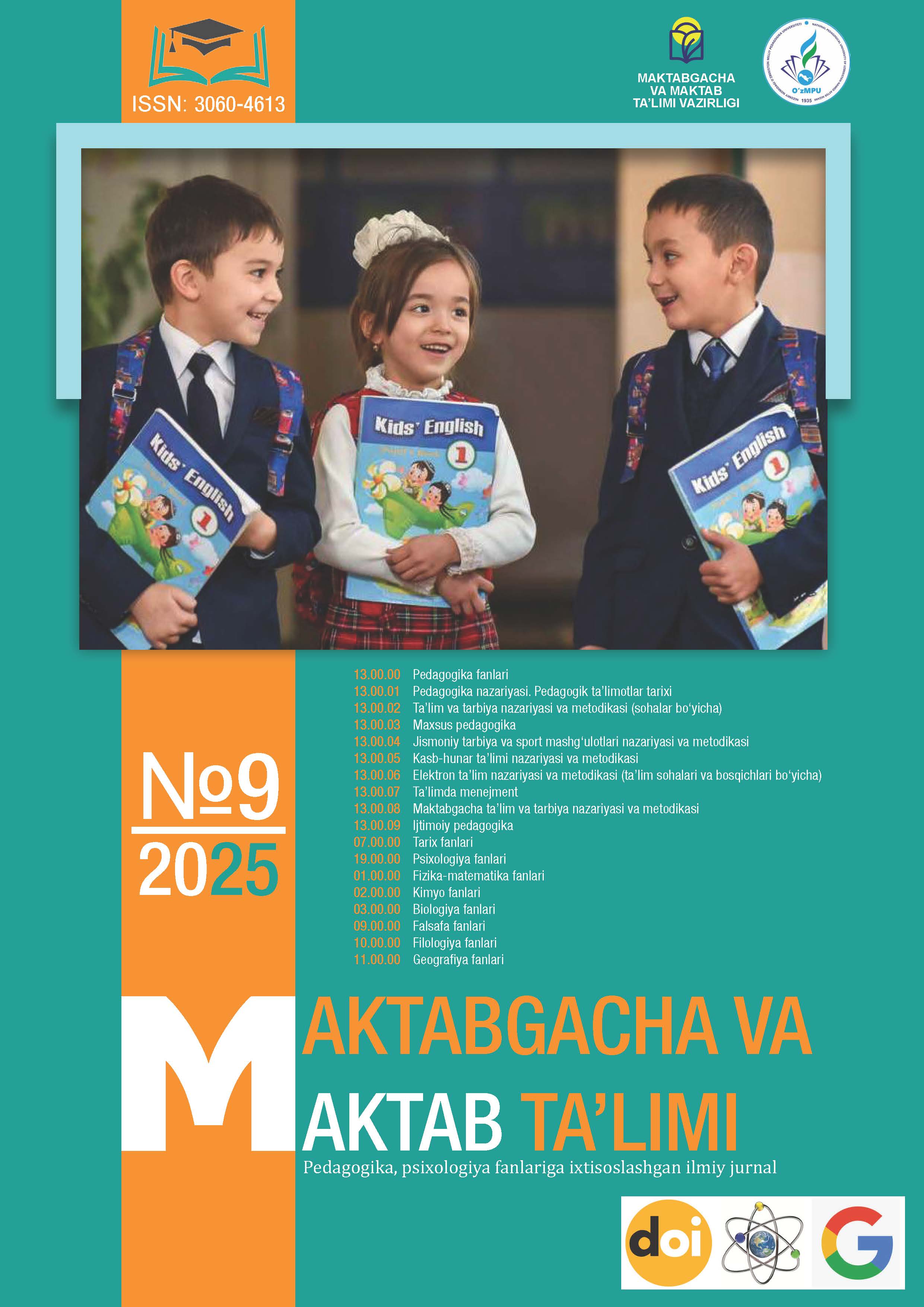Assessing and Monitoring Pedagogical Creativity in Modern Education Processes
DOI:
https://doi.org/10.5281/zenodo.17245564Ключевые слова:
Pedagogical creativity, teacher innovation, creative teaching, assessment criteria, monitoring systems, educational innovation, divergent thinking, Torrance Tests of Creative Thinking, little-c creativity, flow theory, student-centered learning, professional development, 360-degree feedback, digital monitoring, reflective practiceАннотация
In the 21st century, pedagogical creativity has emerged as a critical competency within educational systems.
The rapid advancement of globalization, information technologies, and the evolving needs of modern learners’ demand
that educators adopt innovative approaches, creative solutions, and novel teaching methods. Consequently, the assessment
and monitoring of pedagogical creativity have become strategically significant issues in contemporary education
Библиографические ссылки
1. Beghetto, R. A., & Kaufman, J. C. (2007). Toward a broader conception of creativity: A case for mini-c creativity. Psychology
of Aesthetics, Creativity, and the Arts, 1(2), 73–79. https://doi.org/10.1037/1931-3896.1.2.73
2. Cropley, A. J. (2001). Creativity in education and learning: A guide for teachers and educators. Routledge.
3. Csikszentmihalyi, M. (1996). Creativity: Flow and the psychology of discovery and invention. HarperCollins.
4. Guilford, J. P. (1967). The nature of human intelligence. McGraw-Hill.
5. Jackson, N., Oliver, M., Shaw, M., & Wisdom, J. (Eds.). (2006). Developing creativity in higher education: An imaginative
curriculum. Routledge.
6. Jeffrey, B., & Craft, A. (2004). Teaching creatively and teaching for creativity: Distinctions and relationships. Educational
Studies, 30(1), 77–87. https://doi.org/10.1080/0305569032000159750
7. Puccio, G. J., Mance, M., & Murdock, M. C. (2010). Creative leadership: Skills that drive change. SAGE Publications.
8. Robinson, K. (2011). Out of our minds: Learning to be creative. Capstone.
9. Runco, M. A. (2014). Creativity: Theories and themes: Research, development, and practice. Academic Press.
10. Sawyer, R. K. (2011). Structure and improvisation in creative teaching. Cambridge University Press.
11. Starko, A. J. (2013). Creativity in the classroom: Schools of curious delight. Routledge.
12. Torrance, E. P. (1974). Torrance Tests of Creative Thinking: Norms-technical manual. Personnel Press
Загрузки
Опубликован
Выпуск
Раздел
Лицензия
Copyright (c) 2025 MAKTABGACHA VA MAKTAB TA’LIMI JURNALI

Это произведение доступно по лицензии Creative Commons «Attribution» («Атрибуция») 4.0 Всемирная.

